
The FDA has approved an additional indication for pemetrexed injection plus pembrolizumab and chemotherapy in the treatment of metastatic non–small cell lung cancer without EGFR or ALK tumor aberrations.

Your AI-Trained Oncology Knowledge Connection!


The FDA has approved an additional indication for pemetrexed injection plus pembrolizumab and chemotherapy in the treatment of metastatic non–small cell lung cancer without EGFR or ALK tumor aberrations.
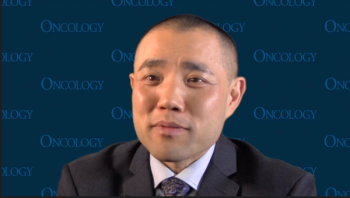
In a conversation during the 2022 American Society of Hematology Annual Meeting, an expert from the University of Texas MD Anderson Cancer Center, spoke to how treatments have improved for patients with mantle cell lymphoma.

The FDA has now requested that the manufacturer of melphalan flufenamide withdraw the multiple myeloma drug from the United States market months after the drug developer rescinded a letter voluntarily withdrawing the therapeutic.

Patients in China diagnosed with high-risk neuroblastoma can now receive treatment with naxitamab-gqgk, which was recently given the greenlight by the National Medical Products Administration.

177Lu vipivotide tetraxetan becomes first targeted radioligand treatment approved by the European Commission for prostate-specific membrane antigen–positive metastatic castration-resistant prostate cancer.

Patients with high-risk Bacillus Calmette Guérin–unresponsive non-muscle invasive bladder cancer can now receive treatment with nadofaragene firadenovec-vncg—the first gene therapy—following its approval by the FDA.

Non-Hispanic Black patients appeared to have higher disease-specific mortality rates than patients of other races, with clinicopathologic factors playing the greatest role in the disparity.

Findings from the phase 3 CONTACT-01 trial indicated that cabozantinib and atezolizumab did not reach the primary end point of overall survival in patients with metastatic non–small cell lung cancer.
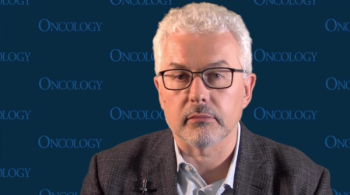
Momelotinib continues to show benefit in reducing splenic symptoms and anemia in myelofibrosis in the second-line setting, making it a likely first treatment choice, according to an expert from the University of Texas MD Anderson Cancer Center.

During the 2022 San Antonio Breast Cancer Symposium, Neil M. Iyengar, MD, took over the CancerNetwork® Twitter to review key presentation takeaways.

The FDA’s approval of new indications and dosing regimens of capecitabine across several cancer types, including breast cancer and colon cancer, marks the first drug to receive an update under the agency’s Project Renewal program.

The new drug application for avasopasem for radiotherapy-induced severe oral mucositis in patients with head and neck cancer is supported by findings from the phase 3 ROMAN trial and phase 2b GT-201 trial.
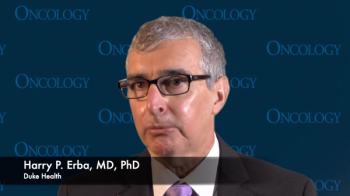
Harry P. Erba, MD, PhD, highlights key data on ziftomenib in patients with relapsed/refractory acute myeloid leukemia and its potential as part of a combination regimen.

According to the phase 3 PERSIST-1 trial and PAC203 trial, thrombocytopenia was associated with myelofibrosis treatment.

Patients with IDH1-mutant relapsed/refractory acute myeloid leukemia achieved a notable complete response rate following treatment with olutasidenib.
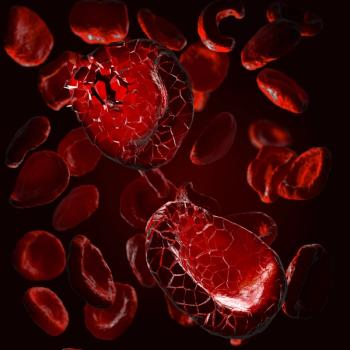
Patients with chronic lymphocytic leukemia or small lymphocytic lymphoma achieved promising early responses following treatment with BCB-11417 with or without zanubrutinib.

The FDA has received a biologic license application for talquetamab to treat relapsed/refractory multiple myeloma.

BCMA/CD19 dual-targeting FasTCAR-T Cells resulted in an overall response rate of 100% among patients with multiple myeloma, with all evaluable patients showing MRD negativity to 12 months.

Alexander Spira, MD, PhD, FACP, of the Virginia Cancer Specialists, discusses how the FDA approval of adagrasib for KRAS G12C–mutated non–small cell lung cancer can provide benefit for this patient population.

Real-world data associate axicabtagene ciloleucel with temporarily worse quality of life in patients with diffuse large B cell lymphoma, transformed follicular lymphoma, or follicular lymphoma, which improves within 1-year post-infusion.

Patients with myelofibrosis and anemia who were previously treated with a JAK inhibitor experienced durable responses up to 48 weeks with momelotinib.

Treatment with induction and maintenance ibrutinib combined with chemoimmunotherapy and autologous stem cell transplant resulted in statistically significantly improved outcomes in a younger population with mantle cell lymphoma.

Those with chronic myeloid leukemia, Philadelphia chromosome-positive acute lymphoblastic leukemia, and those with CML whose tumors have a T315I mutation, were found to have improved efficacy when olverembatinib was given.

Lisocabtagene maraleucel was found to have superior efficacy in the second-line over standard of care therapy for patients with relapsed/refractory large B-cell lymphoma.

Updated findings from the phase 2 CARTITUDE-2 trial highlighted the promising efficacy of ciltacabtagene autoleucel in patients with relapsed or refractory multiple myeloma following early relapse.

Patients with with primary central nervous system lymphoma experienced prolonged progression-free survival and a reduction in risk of death following treatment with high-dose chemotherapy and autologous stem cell transplant compared with non-myeloablative chemoimmunotherapy.

Patients with B-cell malignancies intolerant to acalabrutinib appeared to derive clinically meaningful benefit from zanubrutinib.
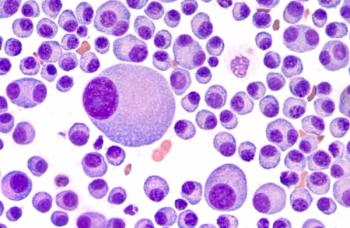
Birtamimab treatment led to longer survival in patients with Mayo Stage IV amyloid light chain amyloidosis at 9 month follow-up.

A 3-drug regimen with post-transplant cyclophosphamide may represent a new prophylactic option for well-matched adults with graft-versus-host disease who underwent reduced-intensity transplant.

Blinatumomab plus consolidation chemotherapy produced a 58% reduction in the risk of death vs consolidation chemotherapy alone in patients with MRD-negative B-cell acute lymphoblastic leukemia.